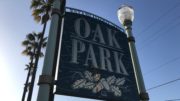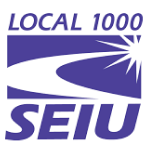Federal stimulus funds must be used to immediately address the suffering among the city’s most vulnerable communities
Note: The following does not reflect the opinion of The California Endowment. This is an essay by Bill Motmans and Tamika L’Ecluse.
On Sept. 8, 2018, The Sacramento Bee editorial board cautiously endorsed Measure U, writing: “Sacramento’s tax hike is worth it, but only if the city keeps its promises.”
“Sacramento’s decision on Measure U is certainly about taxes and spending. But it’s also about trust,” cautioned the editorial board. “Can voters count on city officials to use the proceeds on what they are promising? Will residents of struggling neighborhoods put their faith in City Hall after a history of broken promises?”
Many community leaders in Sacramento’s most vulnerable neighborhoods struggled with their positions on Measure U. Their constituents in the neighborhoods expressed disbelief that elected officials would follow through on assertions that the increased sales tax revenue would be spent on economic inclusion of the city’s lowest income residents and disadvantaged neighborhoods.
Still, many of our community leaders endorsed and worked for Measure U. We put our reputations on the line, believing that with the promised diverse citizen’s Measure U advisory committee, this time would be different — struggling neighborhoods would benefit through the construction of new affordable housing, investment in existing neighborhood businesses and nonprofits, and support of the city’s at-risk youth and families.
But last week, we heard the announcement that Measure U funds would be used to fill an expected $90 million budget deficit tied to COVID-19. City leaders are now planning to postpone their Measure U economic inclusion plan to build up our neighborhoods, in spite of the fact that the residents of these neighborhoods are the hardest hit by the virus-related economic downturn. Hunger, homelessness and overcrowding are immediate threats to the health and lives of these families, most of whom have little or no savings to get them through the next several months or years until Sacramento’s economy recovers.
As a further betrayal, city leaders have proposed federal stimulus funds for economic development projects, including UC Davis’s Aggie Square (a major real estate development aimed at attracting biotech companies), and bolstering the local tourism industry. Neither of these proposed investments will address the immediate and enormous suffering of families, the elderly and children living in neighborhoods such as Fruitridge, Del Paso, North Sacramento, Oak Park and Meadowview. Quite the opposite, investment in Aggie Square commercial projects without a community benefits agreement that includes a large prior investment in new affordable housing and existing neighborhood businesses, will, over time, increase demand for existing housing and commercial space and further destabilize and displace residents and small businesses.
A new coalition of several organizations working in vulnerable neighborhoods, called Sacramento Investment Without Displacement, was created to ensure that public financial investment builds up Sacramento neighborhoods, rather than destabilize them. Our coalition calls on local elected officials to fulfill their commitments to voters. No more broken promises. Now more than ever, with COVID-19 disproportionately hurting communities of color and disadvantaged neighborhoods, public investment must directly and immediately provide relief to our city’s most vulnerable residents.
Bill Motmans is the former president of the Tahoe Park Neighborhood Association and Tamika L’Ecluse is the former president of the Oak Park Neighborhood Association.





























